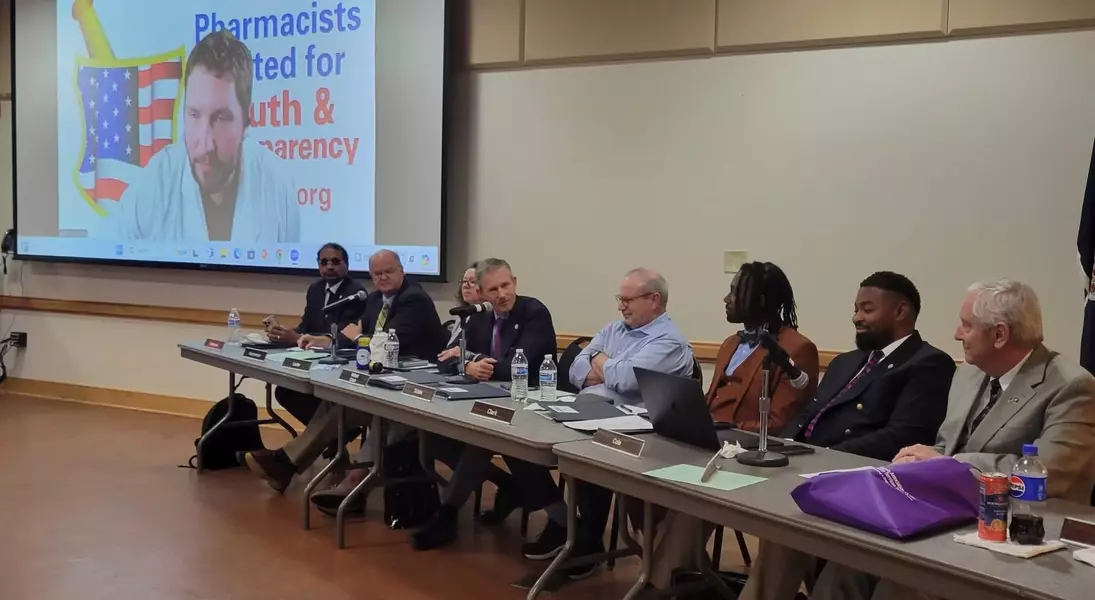Lawmakers traversing rural Virginia this year encountered a consistent theme: Rural communities are grappling with shortages in the healthcare workforce and facing transportation difficulties. After numerous months of meetings and site visits, the bipartisan House Select Committee on Advancing Rural and Small Town Health Care presented its report on Tuesday, accompanied by a set of legislative and budgetary suggestions aimed at tackling these issues.
Bipartisan Solutions for Rural Healthcare Woes
Healthcare Workforce Shortages in Rural Areas
Lawmakers have identified that rural communities are facing a significant shortage of healthcare professionals. This shortage not only impacts the availability of essential medical services but also poses challenges for patients seeking timely care. With about 30% of Virginians residing in areas with limited or no maternity care services, rural patients often have to travel long distances to receive proper medical attention. Midwives have emerged as crucial in filling these gaps, providing perinatal care in various settings such as homes, birth centers, and rural hospitals. To enhance the midwifery workforce, the report recommends increasing Medicaid reimbursement rates for them. Midwives are deeply rooted in the communities they serve and are more likely to stay compared to some OB-GYN medical residents who may work in rural areas for a while and then leave.Moreover, while Governor Glenn Youngkin has committed to continuing funding for OB-GYN and family practice medical residencies, which are vital as rural hospitals close their obstetrics units, the report calls for broader investment in medical residencies statewide. This would help build a stronger healthcare workforce in rural areas and ensure the long-term sustainability of healthcare services.Transportation Challenges and Solutions
Improving transportation access is another crucial aspect addressed in the report. A new program is proposed to offer rides to free clinics and federally qualified health centers. Lawmakers point to Virginia's existing non-emergency transportation program for Medicaid patients, managed by the Department of Medical Assistance Services, as a potential model. This initiative aims to make it easier for rural residents to access healthcare facilities and receive the necessary medical care. By providing reliable transportation, more patients will be able to avail themselves of healthcare services without the burden of long travel distances.Maternal Healthcare and Its Importance
A key section of the report focuses on maternal healthcare, aligning with the recently announced "momnibus" package of bills and budget proposals from Democratic lawmakers. With a significant portion of Virginians living in areas with limited or no maternity care services, rural patients face unique challenges. Midwives play a vital role in filling these gaps by providing perinatal care in different settings. To support the midwifery workforce, the report recommends increasing Medicaid reimbursement rates and expanding investment in medical residencies.Data from the Centers for Disease Control and Prevention reveals that Black women are disproportionately more likely to die from pregnancy complications compared to white women. Racial bias is identified as a contributing factor to these poorer health outcomes for women of color, where doulas have been instrumental in advocating for patients' needs and care. The report further recommends boosting funding for community college doula training programs to enhance their role in supporting parents-to-be and improving health outcomes.Earlier this year, Governor Youngkin signed a bill supporting health insurance coverage for doulas, acknowledging their significance in maternal health. However, he vetoed a separate measure that would have required unconscious bias training for nursing license renewals. Bias training remains a key recommendation from the rural health committee, although it has faced some resistance from Republicans.Committee member Del. Otto Wachsmann clarified the hesitation, stating that the problem is not that Republicans are against cultural awareness training but rather the additional burden it places on providers.Bipartisan Collaboration and the Way Forward
As lawmakers discussed the recommendations from their report, they reflected on the bipartisan camaraderie developed during their committee work. This spirit of collaboration is something they hope to carry forward into the 2025 session. Representing a rural district, Wachsmann has firsthand experience with the challenges highlighted in the report. He has witnessed the closure of pharmacies and grocery stores in his area. It was refreshing to see lawmakers from both rural and urban districts come together to focus on the unique struggles faced by rural communities.Committee Chair Rodney Willett emphasized that although the proposals are not a complete solution, they represent important steps toward improving healthcare access. Even if all of the committee's approximately 30 proposals are eventually adopted, rural healthcare issues will not disappear overnight. Willett expressed the committee's commitment to staying committed to the cause and making progress.In conclusion, lawmakers' efforts to address rural healthcare challenges through bipartisan collaboration and targeted proposals hold great promise for improving healthcare access in rural Virginia. These initiatives aim to build a stronger healthcare workforce, enhance transportation access, and focus on maternal healthcare to ensure better health outcomes for rural residents.You May Like

